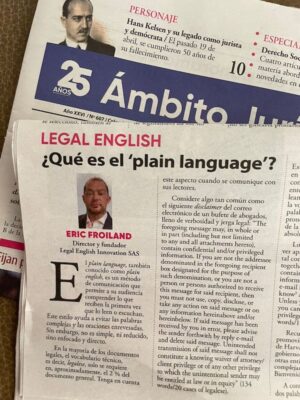Welcome
Hello everyone! Today, we’re here to help you improve how you talk with others and prepare for interviews. In this class, we’ll cover three important things: We’ll learn important words related to jobs, laws, and interviews. These words will make it easier for you to explain things clearly. We’ll talk about different types of questions. Some let you share a lot, while others need short answers. Knowing which to use is super helpful. We’ll practice interviews. This means we’ll practice talking about yourself and your experiences. It’s like a rehearsal for real conversations.
By the end of this class, you’ll know more words, understand how to ask questions, and feel more confident for interviews. Let’s get started on this learning journey together!
Class Vocabulary
Certainly, here’s a list of 15 important vocabulary terms from the previous questions for vocabulary review:
1. **Overview**
2. **Employment situation**
3. **Concerns**
4. **Challenges**
5. **Disputes**
6. **Legal implications**
7. **Elaborate**
8. **Examples**
9. **Workplace policies**
10. **Violation**
11. **Compromised**
12. **Overtime pay**
13. **Unpaid overtime**
14. **Discrimination**
15. **Harassment**
These terms are relevant to discussing labor and employment law matters during an interview.
Part 1 – Open Questions
Open questions are types of questions that encourage people to provide detailed and expressive responses. These questions cannot be answered with a simple «yes» or «no,» but rather require the person to share their thoughts, feelings, or experiences. Open questions usually start with words like «what,» «how,» «why,» «tell me about,» and so on.
They are used to gather more information, insights, and perspectives from the person being asked. Open questions are especially helpful when you want to understand someone’s point of view, explore their feelings, or learn more about a situation. These questions invite the person to elaborate and provide context, leading to richer conversations and a better understanding of their thoughts and experiences.
Sample Questions
Here are 10 open-ended questions you can use to develop an interview for a law firm:
1. **Can you provide an overview of your current employment situation and any concerns you might have related to labor or employment laws?**
2. **Have you experienced any challenges or disputes in your workplace that you believe might have legal implications? Could you elaborate on those situations?**
3. **Can you share any specific examples of workplace policies or practices that you feel might be in violation of labor laws? How have these affected you or your colleagues?**
4. **Tell me about any instances where you felt your rights as an employee were compromised. How did you handle those situations?**
5. **Are you aware of the laws governing overtime pay and working hours? Have you ever encountered issues related to unpaid overtime or unfair scheduling practices?*
6. **Have you faced any form of discrimination or harassment at your workplace? How did you address these issues, and do you believe they might be in violation of anti-discrimination laws?**
7. **Could you discuss any contracts or agreements you’ve entered into with your employer, such as non-compete clauses or confidentiality agreements? Do you have any concerns about the terms outlined in these documents?**
8. **Have you considered discussing your workplace concerns with your employer or HR department? If so, what was their response?**
9. **Are you familiar with your rights related to family and medical leave, including situations involving pregnancy, illness, or caring for a family member? Have you encountered any difficulties in exercising these rights?**
10. **Tell me about any changes or developments in your workplace that you believe might impact your employment rights. How do you envision our firm assisting you with these matters?**
Remember, these open-ended questions are designed to encourage interviewees to provide detailed and insightful responses, allowing you to gather essential information and understand their potential legal needs within the context of labor and employment law.

Sample Answers
Here are some sample answers that interviewees might provide in response to the open-ended questions:
1. **Overview of Current Employment Situation:**
Interviewee: «I’ve been working as a manager in a retail store for the past three years. Lately, I’ve noticed that my working hours are consistently exceeding what was initially agreed upon in my contract. I’m concerned that I might not be receiving proper compensation for the extra time I’m putting in.»
2. **Challenges or Disputes in the Workplace:**
Interviewee: «In my last job, I witnessed several instances of gender-based pay discrepancies among colleagues doing the same work. It seemed unfair, and some of my coworkers were hesitant to speak up about it.»
3. **Workplace Policies or Practices Violating Labor Laws:**
Interviewee: «At my current workplace, the management regularly asks us to work off the clock to complete tasks before opening hours. I believe this might be a violation of labor laws, as we’re not being compensated for that time.»
4. **Experiences with Compromised Employee Rights:**
Interviewee: «In a previous job, my employer dismissed me without proper notice or valid reason. I didn’t know my rights at the time and felt powerless to contest the situation.»
5. **Unpaid Overtime or Unfair Scheduling:**
Interviewee: «I work as a freelance graphic designer, and sometimes clients ask for last-minute changes that require working late into the night. I’m concerned that I’m not being paid fairly for these additional hours.»
6. **Discrimination or Harassment Instances:**
Interviewee: «I’ve faced derogatory comments from my supervisor about my ethnic background. I tried discussing it with HR, but they brushed it off as ‘office banter.'»
7. **Contracts or Agreements with Concerns:**
Interviewee: «I recently signed a new employment contract with a non-compete clause that seems overly restrictive. I’m worried it might hinder my future career opportunities.»
8. **Addressing Concerns with Employer or HR:**
Interviewee: «I raised my concerns about safety hazards in the workplace with my employer, but they didn’t take any action. It’s frustrating because I worry about the well-being of my coworkers.»
9. **Rights Related to Family and Medical Leave:**
Interviewee: «When I requested time off for maternity leave, my employer seemed reluctant and questioned the necessity. I feel like I should have the right to this leave without being questioned.»
10. **Changes or Developments Impacting Employment Rights:**
Interviewee: «Our company is undergoing a merger, and there’s talk of layoffs. I’m concerned about my job security and whether the proper procedures will be followed.»
These sample answers provide a range of scenarios that interviewees might discuss during an interview with a labor law firm. These responses can help the firm understand the specific issues individuals are facing and how they might benefit from legal advice and assistance.
Part 2: Closed Questions
Closed questions are specific types of questions that can typically be answered with a brief «yes» or «no,» a single piece of information, or a simple fact. They usually don’t require the person being asked to elaborate or provide detailed explanations. Closed questions often start with words like «is,» «are,» «do,» «did,» «have,» and so on.
Closed questions are important because they can help you quickly gather specific and focused information. They are useful when you need to confirm facts, get straight to the point, or obtain clear and concise answers. These questions are also helpful in situations where time is limited or when you’re seeking specific details without delving into broader discussions. However, compared to open questions, closed questions might not provide as much depth or insight into a person’s thoughts, feelings, or experiences.


Sample Questions
Certainly, here are 10 closed questions that correspond to the open-ended questions mentioned earlier:
1. **Current Employment Situation:**
Closed Question: «Are you working as a manager in a retail store?»
2. **Challenges or Disputes in the Workplace:**
Closed Question: «Did you witness instances of gender-based pay discrepancies at your previous job?»
3. **Workplace Policies or Practices Violating Labor Laws:**
Closed Question: «Do you find yourself working off the clock before opening hours?»
4. **Experiences with Compromised Employee Rights:**
Closed Question: «Were you dismissed without proper notice or valid reason at your previous job?»
5. **Unpaid Overtime or Unfair Scheduling:**
Closed Question: «Do you sometimes work late into the night due to last-minute changes from clients?»
6. **Discrimination or Harassment Instances:**
Closed Question: «Did you face derogatory comments about your ethnic background from your supervisor?»
7. **Contracts or Agreements with Concerns:**
Closed Question: «Did you recently sign an employment contract with a non-compete clause?»
8. **Addressing Concerns with Employer or HR:**
Closed Question: «Did you raise safety concerns with your employer?»
9. **Rights Related to Family and Medical Leave:**
Closed Question: «Did your employer question the necessity of your maternity leave request?»
10. **Changes or Developments Impacting Employment Rights:**
Closed Question: «Is your company undergoing a merger with potential layoffs?»
Closed questions are designed to elicit specific, concise answers and are often used to confirm information or gather specific details from interviewees.
About the content creator.
Eric Froiland is a legal English teacher originating from the United States, who has resided in Bogota, Colombia for the past decade. He holds the esteemed position of a guest columnist at Ambito Jurídico, where he shares his profound knowledge with its discerning readership. Additionally, as the proprietor and founder of Legal English Innovation SAS, he has earned widespread recognition as the foremost legal English academy in Colombia, proudly serving as an official Test of Legal English Skills (TOLES) examination center.

